-
 Bitcoin
Bitcoin $114400
1.32% -
 Ethereum
Ethereum $3499
2.20% -
 XRP
XRP $2.922
4.26% -
 Tether USDt
Tether USDt $0.0000
0.03% -
 BNB
BNB $752.6
1.53% -
 Solana
Solana $161.8
1.64% -
 USDC
USDC $0.9999
0.01% -
 TRON
TRON $0.3267
1.32% -
 Dogecoin
Dogecoin $0.1991
3.02% -
 Cardano
Cardano $0.7251
3.29% -
 Hyperliquid
Hyperliquid $38.32
3.36% -
 Stellar
Stellar $0.3972
7.58% -
 Sui
Sui $3.437
2.74% -
 Chainlink
Chainlink $16.29
3.65% -
 Bitcoin Cash
Bitcoin Cash $545.3
3.70% -
 Hedera
Hedera $0.2482
7.49% -
 Ethena USDe
Ethena USDe $1.001
0.03% -
 Avalanche
Avalanche $21.40
2.02% -
 Toncoin
Toncoin $3.579
1.56% -
 Litecoin
Litecoin $109.3
2.20% -
 UNUS SED LEO
UNUS SED LEO $8.951
-0.18% -
 Shiba Inu
Shiba Inu $0.00001220
2.75% -
 Polkadot
Polkadot $3.613
2.99% -
 Uniswap
Uniswap $9.173
3.78% -
 Monero
Monero $302.6
2.62% -
 Dai
Dai $0.0000
0.00% -
 Bitget Token
Bitget Token $4.320
1.52% -
 Pepe
Pepe $0.00001048
3.40% -
 Cronos
Cronos $0.1314
4.33% -
 Aave
Aave $259.4
3.54%
How do regulatory policies in the NFT market affect the market?
Regulatory policies shape the NFT market by affecting legality, imposing taxes, and enhancing consumer protection, influencing market dynamics and investor behavior.
Apr 04, 2025 at 08:01 am
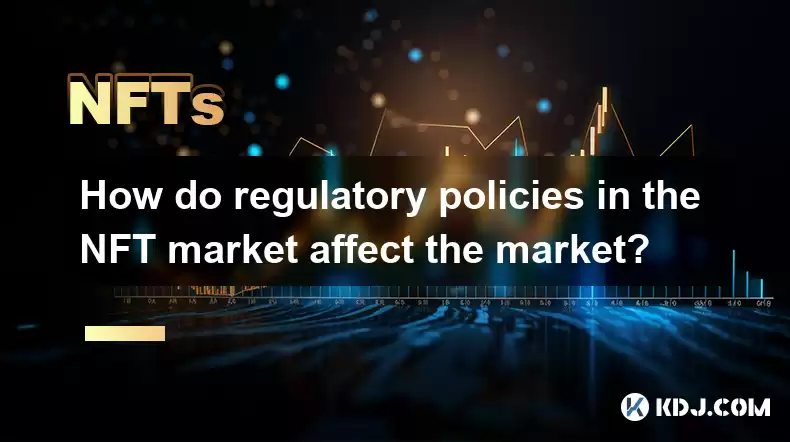
Regulatory policies play a crucial role in shaping the NFT market, influencing everything from market dynamics to investor behavior. As non-fungible tokens (NFTs) continue to gain popularity, governments and regulatory bodies worldwide are grappling with how to oversee this burgeoning sector. These policies can impact the market in various ways, including affecting the legality of NFT transactions, imposing taxes, and setting standards for transparency and consumer protection. Understanding these regulations is essential for anyone involved in the NFT market, whether as a creator, investor, or trader. This article delves into the different aspects of regulatory policies and their effects on the NFT market.
Impact on Legality and Compliance
Regulatory policies directly influence the legality of NFT transactions. In some jurisdictions, NFTs are treated as digital assets, subject to existing financial regulations. This can mean that platforms and marketplaces must comply with anti-money laundering (AML) and know your customer (KYC) requirements. For instance, in the United States, the Financial Crimes Enforcement Network (FinCEN) has issued guidance that may apply to certain NFT transactions. Compliance with these regulations can increase the operational costs for platforms, but it also adds a layer of legitimacy and security that can attract more mainstream users.
- Compliance with AML and KYC regulations can be mandatory in certain jurisdictions.
- Regulatory bodies like FinCEN in the U.S. may issue guidance affecting NFT transactions.
- Increased compliance costs can impact the operational efficiency of NFT platforms.
Taxation and Its Effects
Tax policies are another critical aspect of regulatory impact on the NFT market. Governments are increasingly looking to tax NFT transactions, which can affect both the buying and selling sides of the market. In the U.S., for example, the Internal Revenue Service (IRS) considers NFTs as collectibles, subject to capital gains tax. This means that profits from selling NFTs could be taxed at a higher rate than other types of investments. Such tax policies can influence investor behavior, potentially deterring some from engaging in the market due to the added financial burden. However, clear tax guidelines can also provide clarity and stability, encouraging long-term investment.
- NFTs may be treated as collectibles and subject to capital gains tax.
- High tax rates on NFT profits can deter potential investors.
- Clear tax guidelines can provide stability and encourage long-term investment.
Consumer Protection and Market Integrity
Regulatory policies aimed at consumer protection and market integrity are vital for fostering trust in the NFT market. These policies can include requirements for transparency, such as mandatory disclosure of ownership and transaction details. In the European Union, for example, the Markets in Crypto-Assets (MiCA) regulation aims to provide a comprehensive framework for digital assets, including NFTs. Such regulations can help prevent fraud and scams, which are prevalent in the NFT space. By ensuring that buyers have access to accurate information, these policies can enhance market integrity and boost consumer confidence.
- Regulations like MiCA in the EU aim to enhance transparency and consumer protection.
- Mandatory disclosure of ownership and transaction details can prevent fraud.
- Enhanced consumer protection can boost confidence and attract more participants to the market.
Market Dynamics and Innovation
Regulatory policies can also impact market dynamics and innovation within the NFT sector. Strict regulations may stifle innovation by imposing heavy compliance burdens on new entrants. On the other hand, a lack of regulation can lead to a Wild West scenario, where innovation thrives but at the cost of increased risk for consumers. Finding the right balance is crucial. For instance, in countries like Singapore, regulators are taking a more progressive approach, fostering innovation while still providing oversight. This can lead to a more vibrant and diverse NFT ecosystem, where new projects and ideas can flourish.
- Strict regulations can stifle innovation due to high compliance costs.
- A lack of regulation can increase risk but also allow for more innovation.
- Progressive regulatory approaches, like in Singapore, can foster a balanced ecosystem.
Impact on Market Liquidity and Price Volatility
Regulatory policies can significantly affect market liquidity and price volatility in the NFT market. For example, if a government imposes strict regulations on NFT transactions, it could reduce the number of participants willing to engage in the market, thereby decreasing liquidity. Conversely, clear and supportive regulations can attract more investors, increasing liquidity and potentially stabilizing prices. Additionally, regulations that impose reporting requirements or limit certain types of transactions can lead to increased price volatility as market participants adjust to the new rules. Understanding these dynamics is crucial for anyone looking to navigate the NFT market effectively.
- Strict regulations can reduce market liquidity by deterring participants.
- Supportive regulations can increase liquidity and stabilize prices.
- Reporting requirements and transaction limits can lead to increased price volatility.
Influence on Cross-Border Transactions
The NFT market is inherently global, with transactions often occurring across borders. Regulatory policies can significantly impact these cross-border transactions. For instance, if one country imposes strict regulations on NFT transactions while another has a more lenient approach, it can create arbitrage opportunities but also complicate compliance for international platforms. Additionally, regulations concerning international money transfers and digital asset exchanges can affect the ease and cost of cross-border NFT transactions. Navigating these regulatory differences requires careful consideration and often necessitates the use of specialized legal and financial services.
- Regulatory differences between countries can create arbitrage opportunities.
- Compliance with international regulations can complicate operations for global platforms.
- Regulations on international money transfers can impact the cost and ease of cross-border transactions.
Regulatory Uncertainty and Market Sentiment
Regulatory uncertainty is a significant factor affecting the NFT market. When regulations are unclear or constantly changing, it can lead to uncertainty among market participants, affecting their willingness to invest or engage in the market. For example, if a government is considering new regulations but has not yet finalized them, investors may hold off on making significant investments until the regulatory landscape becomes clearer. This uncertainty can lead to decreased market activity and increased volatility. Conversely, when regulations are clear and stable, it can foster a more predictable and confident market environment.
- Regulatory uncertainty can lead to decreased market activity and increased volatility.
- Clear and stable regulations can foster a more predictable market environment.
- Investors may hold off on investments until the regulatory landscape becomes clearer.
Case Studies: Regulatory Impact in Different Jurisdictions
Examining specific case studies can provide valuable insights into how regulatory policies affect the NFT market in different jurisdictions. In the United States, the Securities and Exchange Commission (SEC) has taken a keen interest in NFTs, particularly those that may be considered securities. This has led to increased scrutiny and potential legal challenges for NFT projects. In contrast, countries like Switzerland have adopted a more crypto-friendly approach, with regulations that encourage innovation while still providing oversight. These differing approaches highlight the varied impact of regulatory policies on the NFT market and underscore the importance of understanding local regulations.
- The SEC in the U.S. has increased scrutiny on NFTs, potentially affecting market dynamics.
- Switzerland's crypto-friendly regulations encourage innovation in the NFT space.
- Understanding local regulations is crucial for navigating the global NFT market.
Future Trends and Regulatory Evolution
As the NFT market continues to evolve, so too will the regulatory landscape. Future trends may include more harmonized global regulations, as international bodies seek to address the cross-border nature of NFT transactions. Additionally, as the technology behind NFTs matures, regulators may develop more nuanced approaches that balance innovation with consumer protection. For instance, the use of blockchain analytics and smart contract audits could become standard regulatory requirements, enhancing transparency and security in the market. Keeping abreast of these trends is essential for anyone involved in the NFT space, as they will shape the future of the market.
- Future trends may include more harmonized global regulations for NFTs.
- Regulators may develop more nuanced approaches as NFT technology matures.
- Blockchain analytics and smart contract audits could become standard regulatory requirements.
Common Questions Related to Regulatory Policies in the NFT Market
Q: How do regulatory policies affect the legality of NFT transactions?
A: Regulatory policies can determine the legality of NFT transactions by imposing requirements such as AML and KYC compliance. In some jurisdictions, NFTs are treated as digital assets, subject to existing financial regulations. This can add legitimacy to the market but also increase operational costs for platforms.
Q: What impact do tax policies have on the NFT market?
A: Tax policies can significantly affect the NFT market by imposing taxes on transactions, such as capital gains tax on profits from selling NFTs. High tax rates can deter investors, while clear tax guidelines can provide stability and encourage long-term investment.
Q: How do regulations aimed at consumer protection influence the NFT market?
A: Regulations aimed at consumer protection, such as mandatory disclosure of ownership and transaction details, can enhance market integrity and boost consumer confidence. These policies help prevent fraud and scams, making the market more attractive to mainstream users.
Q: Can regulatory policies stifle innovation in the NFT market?
A: Yes, strict regulatory policies can stifle innovation by imposing heavy compliance burdens on new entrants. However, a lack of regulation can also lead to increased risk. Finding a balance is crucial for fostering a vibrant and diverse NFT ecosystem.
Q: How do regulatory policies affect market liquidity and price volatility in the NFT market?
A: Regulatory policies can impact market liquidity and price volatility. Strict regulations may reduce liquidity by deterring participants, while supportive regulations can increase liquidity and stabilize prices. Reporting requirements and transaction limits can also lead to increased volatility.
Q: What challenges do regulatory differences pose for cross-border NFT transactions?
A: Regulatory differences between countries can create arbitrage opportunities but also complicate compliance for international platforms. Regulations concerning international money transfers and digital asset exchanges can affect the ease and cost of cross-border NFT transactions.
Q: How does regulatory uncertainty affect the NFT market?
A: Regulatory uncertainty can lead to decreased market activity and increased volatility as investors may hold off on making significant investments until the regulatory landscape becomes clearer. Clear and stable regulations can foster a more predictable market environment.
Q: Can you provide examples of how regulatory policies impact the NFT market in different jurisdictions?
A: In the U.S., the SEC's scrutiny of NFTs can lead to legal challenges and affect market dynamics. In contrast, Switzerland's crypto-friendly regulations encourage innovation. Understanding local regulations is crucial for navigating the global NFT market.
Q: What future trends can we expect in the regulatory landscape of the NFT market?
A: Future trends may include more harmonized global regulations and more nuanced regulatory approaches as NFT technology matures. Blockchain analytics and smart contract audits could become standard requirements, enhancing transparency and security in the market.
Disclaimer:info@kdj.com
The information provided is not trading advice. kdj.com does not assume any responsibility for any investments made based on the information provided in this article. Cryptocurrencies are highly volatile and it is highly recommended that you invest with caution after thorough research!
If you believe that the content used on this website infringes your copyright, please contact us immediately (info@kdj.com) and we will delete it promptly.
- Cryptocurrency, Altcoins, and Profit Potential: Navigating the Wild West
- 2025-08-04 14:50:11
- Blue Gold & Crypto: Investing Disruption in Precious Metals
- 2025-08-04 14:30:11
- Japan, Metaplanet, and Bitcoin Acquisition: A New Era of Corporate Treasury?
- 2025-08-04 14:30:11
- Coinbase's Buy Rating & Bitcoin's Bold Future: A Canaccord Genuity Perspective
- 2025-08-04 14:50:11
- Coinbase's Buy Rating Maintained by Rosenblatt Securities: A Deep Dive
- 2025-08-04 14:55:11
- Cryptos, Strategic Choices, High Returns: Navigating the Meme Coin Mania
- 2025-08-04 14:55:11
Related knowledge
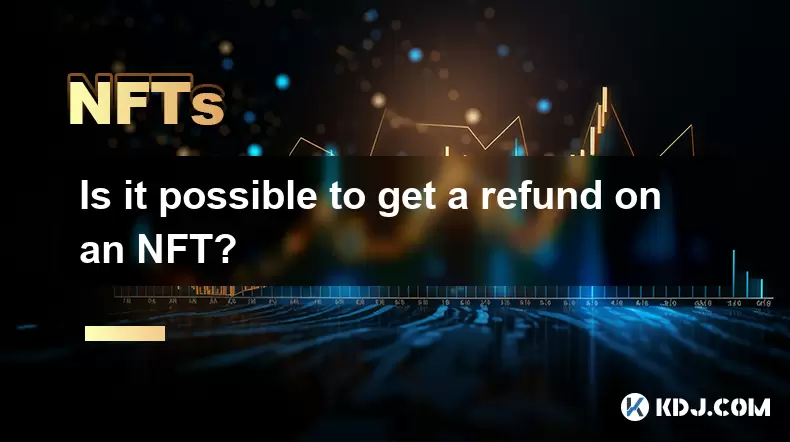
Is it possible to get a refund on an NFT?
Jul 21,2025 at 08:35pm
Understanding NFT Transactions and RefundsWhen you purchase an NFT (Non-Fungible Token), the transaction is typically recorded on a blockchain, making...
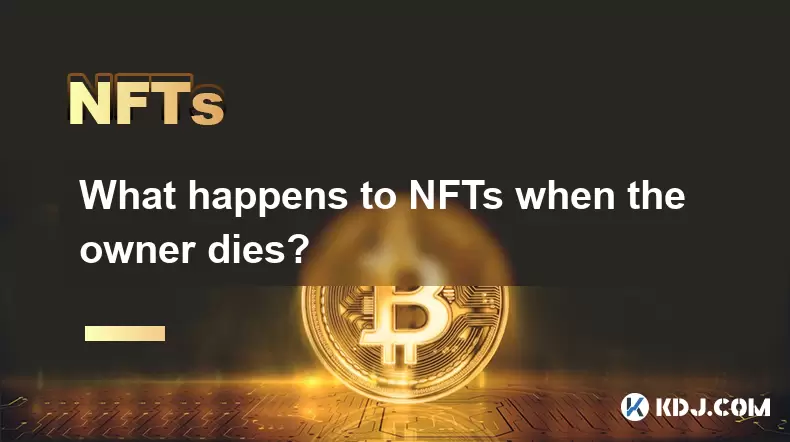
What happens to NFTs when the owner dies?
Jul 22,2025 at 02:43pm
Legal Ownership and Digital AssetsWhen an individual owns NFTs, the question of what happens to these assets upon their death is a pressing one. NFTs ...
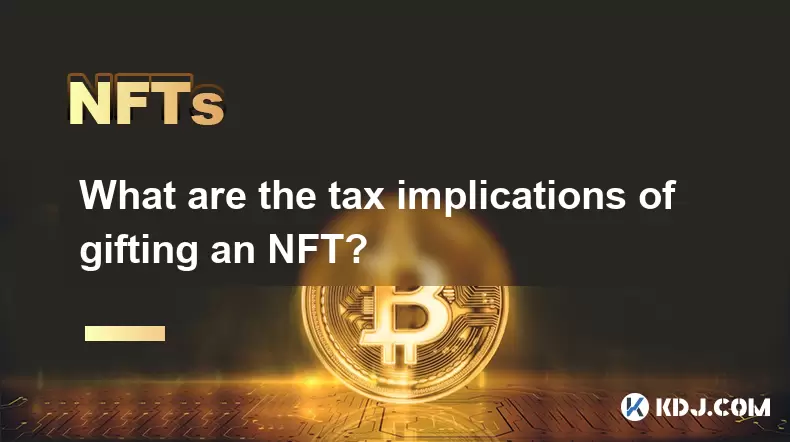
What are the tax implications of gifting an NFT?
Jul 19,2025 at 04:21am
Understanding the Basics of NFT GiftingGifting a Non-Fungible Token (NFT) involves transferring ownership from one individual to another without recei...
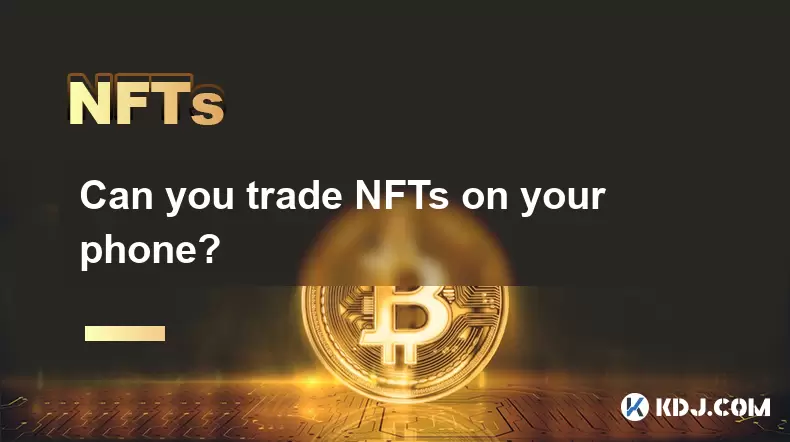
Can you trade NFTs on your phone?
Jul 18,2025 at 04:29am
Trading NFTs on Mobile DevicesYes, you can trade NFTs on your phone, and the process has become increasingly streamlined thanks to a variety of mobile...
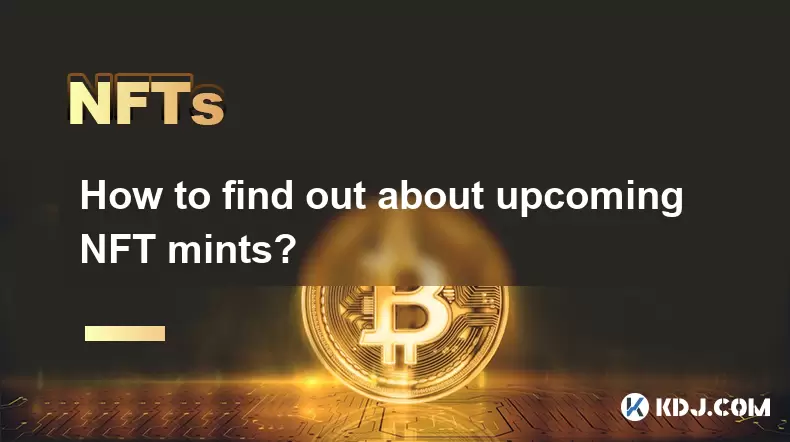
How to find out about upcoming NFT mints?
Jul 18,2025 at 11:50am
Exploring NFT Minting OpportunitiesUnderstanding the landscape of upcoming NFT mints is crucial for collectors, investors, and creators who wish to st...
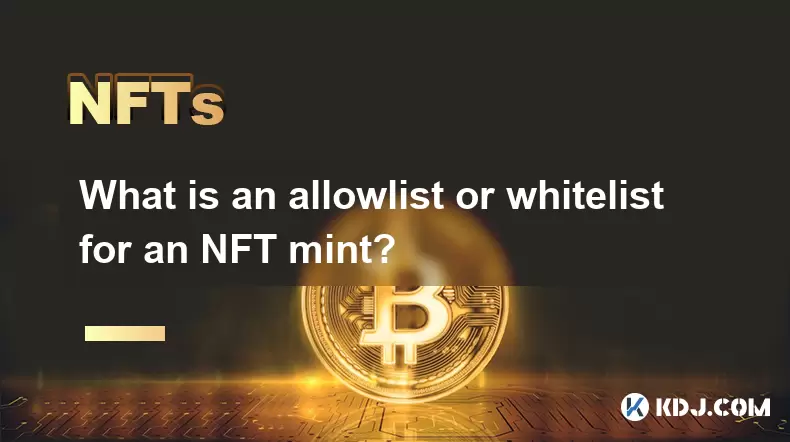
What is an allowlist or whitelist for an NFT mint?
Jul 20,2025 at 07:14pm
Understanding the Concept of an Allowlist for NFT MintingAn allowlist, also commonly referred to as a whitelist, is a mechanism used in the NFT mintin...

Is it possible to get a refund on an NFT?
Jul 21,2025 at 08:35pm
Understanding NFT Transactions and RefundsWhen you purchase an NFT (Non-Fungible Token), the transaction is typically recorded on a blockchain, making...

What happens to NFTs when the owner dies?
Jul 22,2025 at 02:43pm
Legal Ownership and Digital AssetsWhen an individual owns NFTs, the question of what happens to these assets upon their death is a pressing one. NFTs ...

What are the tax implications of gifting an NFT?
Jul 19,2025 at 04:21am
Understanding the Basics of NFT GiftingGifting a Non-Fungible Token (NFT) involves transferring ownership from one individual to another without recei...

Can you trade NFTs on your phone?
Jul 18,2025 at 04:29am
Trading NFTs on Mobile DevicesYes, you can trade NFTs on your phone, and the process has become increasingly streamlined thanks to a variety of mobile...

How to find out about upcoming NFT mints?
Jul 18,2025 at 11:50am
Exploring NFT Minting OpportunitiesUnderstanding the landscape of upcoming NFT mints is crucial for collectors, investors, and creators who wish to st...

What is an allowlist or whitelist for an NFT mint?
Jul 20,2025 at 07:14pm
Understanding the Concept of an Allowlist for NFT MintingAn allowlist, also commonly referred to as a whitelist, is a mechanism used in the NFT mintin...
See all articles

























































































